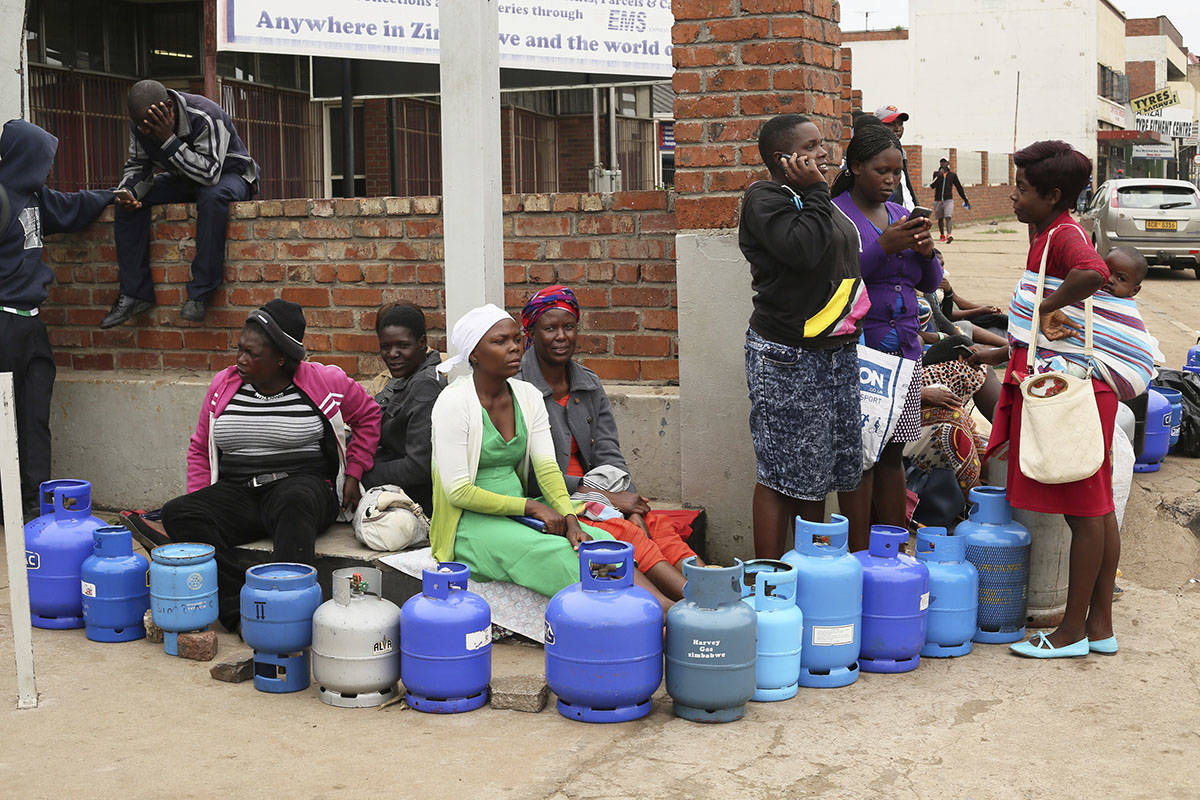A violent crackdown continued Friday in Zimbabwe as rights groups alleged that women had been raped during house-to-house searches, while the government criticized a report by its own rights commission that said security forces had used “systematic torture.”
Zimbabweans say abuses have not calmed since President Emmerson Mnangagwa on Tuesday denounced the violence as “unacceptable.” The unrest began last week as people protested a steep increase in fuel prices that made gasoline the world’s most expensive. The government accuses the opposition of stirring up trouble.
The army asserts that uniformed perpetrators of abuses are “bogus elements” out to tarnish its image.
Fearful residents in poor and working-class suburbs of the capital, Harare, and second city, Bulawayo, are locking themselves in at night. At least 12 people have been killed in the unrest and more than 300 wounded, scores with gunshot wounds, doctors and rights workers have said.
“We have received very disturbing reports of a number of cases of women allegedly raped by members of security forces,” said Dewa Mavhinga, southern Africa director for Human Rights Watch. He added: “Beatings, harassment and other abuses have continued after Mnangagwa’s return and there are no clear actions from the government to hold accountable those committing the abuses.”
Police spokeswoman Charity Charamba said she had not received any reports of rape.
Justice Minister Ziyambi Ziyambi said a critical report earlier this week by the Zimbabwe Human Rights Commission, a constitutional body, was not based on “thorough investigation” and did not cover the “two most anarchical days” of last week’s unrest.
Those with complaints should report them to the police or to military police, he said.
Meanwhile, vendors in the city centre were being routinely rounded up by the military, beaten and dumped at police stations, human rights lawyer Doug Coltart said.
Dozens of civil society leaders, opposition figures and activists have gone into hiding, fearing for their lives, Amnesty International said in a statement. It noted reported rapes, “lethal force” against protesters and the targeting of health workers who treat victims.
“Children as young as 11 years old have been detained on frivolous charges,” said Deprose Muchena, Amnesty’s southern Africa director. “The authorities must immediately stop this merciless crackdown.”
Zimbabwe Lawyers for Human Rights said arrests of suspected protesters continued, with many denied bail.
On Friday the High Court in Harare said it would rule on Tuesday on an application by well-known activist and pastor Evan Mawarire to be released on bail. He has been held for a week and is charged with subversion, which carries a 20-year prison sentence. He is accused of inciting the unrest online. His lawyer rejects the allegations.
Farai Mutsaka, The Associated Press



